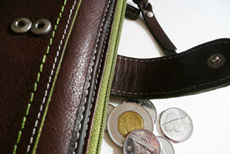Overdraft as a Handy Facility or a Protection Racket
Overdraft occurs when an account holder withdraws a sum of money and the balance becomes negative. In some cases, banks allow overdrafts and charge interest. Penalty fees may apply if there is no prior agreement. The financial institution may also asses higher interest charges.
Why Holders Exceed the Available Balance
There are many reasons why this happens, and one is merchant error. Overdraft may occur if a retailer debits an account by mistake. For example, the client authorizes a payment of $10 which is posted as $100. In this case, the account holder can use chargeback to get his money back. There are other reasons why holders may be overdrawn. These include bank error, authorization holds, and return check deposits. With authorization holds, funds are transferred from your debit card to a retailer. Authorization is required to complete the transaction, with funds released by your financial institution. The hold will fall off in 1 to 5 days, but the funds won’t be available in the account. The problem is that retailers are not allowed to cancel transactions in many cases. Even if cancellation is possible, the money is still held for up to 5 days. If you or a merchant swipes your card twice by mistake this will result in a double hold. Other reasons for overdraft include electronic withdrawals, short-term loans, fraud, playing the float, and bank fees. Withdrawing more money from an ATM than what is available in the account often results in penalty fees. This is possible if your financial institution has your consent. The account holder is allowed to revoke the service and is offered a notice that describes the conditions.

Ways to Avoid Overdrafts
The simplest way to do this is to check your online statements and monitor your account. Keep track of your expenses on a daily or weekly basis. You may also create a cash cushion and check its status regularly. Some banks allow their customers to sign for alerts, either by text message or email. Thus you will be notified if your account reaches a certain minimum. It is also a good idea to check whether your bank has processed all of your transactions. The situation is more complicated if you hold a joint account. Then you may want to inform the other holder if you plan to make a purchase or payment.
It is important to monitor your account regularly to avoid victimization. Identity theft is common today. Fraudsters use different techniques such as phishing, account takeover, fake checks, card fraud, and demand drafts.
You may want to switch from automatic to manual payments to keep track of transactions. Automatic payments are one reason why many account holders are overdrawn. They are risky, especially if you are not in the habit of recording transactions in your register. Another option is to link your savings or credit account to your checking account. You can authorize your financial institution to use money in your savings account to cover overdrafts. Look at interest rates and bank fees before you link your accounts. Some financial institutions offer lines of credit to their customers. You can draw on the line if you exceed the available balance. While charges are assessed, you will pay less compared to overdraft fees. Opponents call them a protection racket because they make a significant part of the revenues of financial institutions. Some people compare them to payday loans and other unfair and irresponsible lending practices. Fees are at $30 on average. If your account is overdrawn multiple times, you may end up paying hundreds of dollars. Financial experts propose that overdraft fees are banned altogether. Another option is to place caps. Transparent disclosure and strict monitoring of bank practices are also steps in the right direction.
Finally, while it is important to keep track of the available balance, transactions in non-working hours as well as checks are not reflected. Consider transactions of this type while looking at your balance.
Related Articles
Overdraft Protection, Limits, and Types
Overdraft protection is a feature of checking accounts that allows people to write checks for sums that exceed the balance. This feature is available to bank clients who have a line of credit. Otherwise, financial institutions charge fees for bouncing checks. Benefits of Using ItThe main advantage...
Beneficial Features of Checking Accounts
A checking account allows holders to make deposits and withdrawals. The main benefit of this type of transactional accounts is that the funds deposited in them are liquid. This means that money can be withdrawn at any time and no penalties apply. There are different ways to withdraw funds,...
